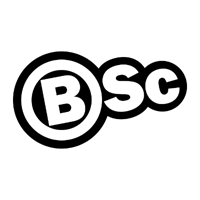

The NRL has directed the Match Review Committee to take a hard line against players lifting opponents into a “dangerous position” where they could injure their head or neck.
This follows an extensive review of performance data and tackle analytics over the first six rounds of the season.
NRL Head of Football, Mr Todd Greenberg, said that, from this weekend, any player involved in a dangerous lifting tackle on an opponent could expect to be charged – unless they pulled out of it quickly.
A dangerous position is where the head or neck of the tackled player dips below the horizontal level of the hips – and it is not immediately corrected.
Mr Greenberg said charges had not been laid in some cases this year because the tackled player was able to move into a position where he was unlikely to land on his head or neck first.
But he said, from this weekend, players will be charged if they lift an opponent into any position where they could land on their head or neck.
“If you lift a player and put him in a dangerous position you will be charged unless you pull out quickly and return the player to a safe position,” Mr Greenberg said.
“The only discretion the Match Review Committee will have is the grading of the charge.
“It is important to stress that the rules have not changed… rather the way in which they are to be applied has been re-emphasised with the Match Review Committee.”
Mr Greenberg said the NRL was not satisfied with the action taken in regard to some lifting tackles in the first six rounds of the Premiership.
He said players should not escape penalty just because an opponent was lucky enough to move his body into a position where his head or neck was not going to hit the ground first.
“We have been disappointed that some players have escaped charges for tackles we believe were dangerous,” Mr Greenberg said.
“So we are lowering the threshold for a dangerous tackle charge – and it starts this weekend.”
Mr Greenberg said the edict followed an extensive review of tackles so far this season.
It found that there had been a significant decrease in three-man tackles – from 36 per cent to 30 per cent - since the new rules were introduced at the start of the season.
“We believe it is not the three-man tackle that is of concern but the dangerous lifting tackle where a player goes beyond the horizontal,” Mr Greenberg said.
“So that’s where the focus will be for the Match Review Committee.
“We’ve given the committee a clear definition of what we believe is dangerous and we want them to police it ruthlessly.”






